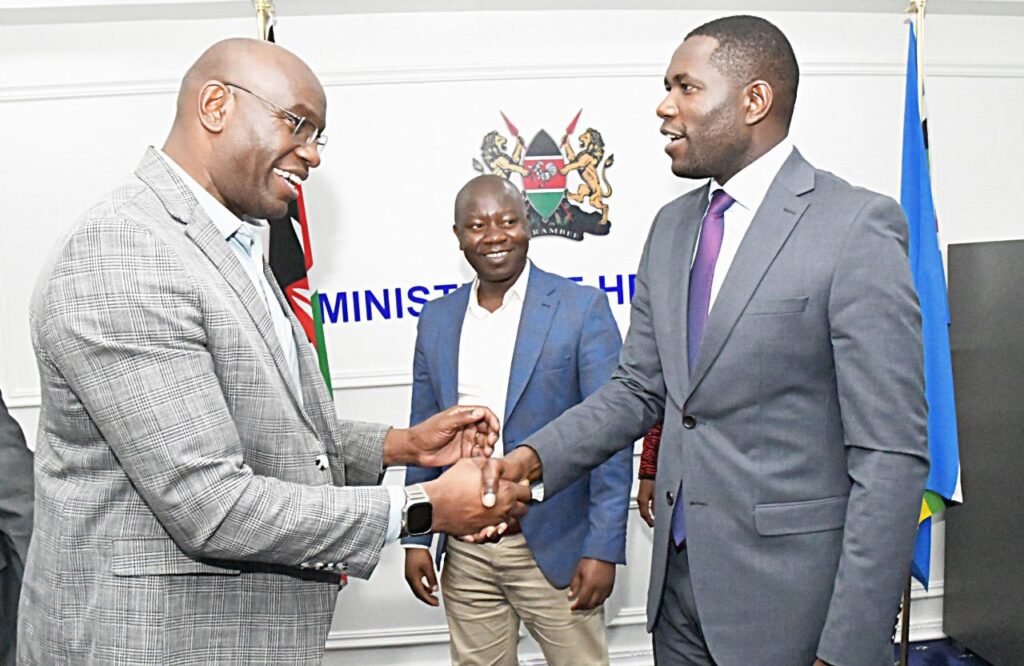The Ministry of Health has entered a strategic partnership with the Association of Medical Engineering of Kenya (AMEK). This collaboration, spearheaded by Principal Secretary for Medical Services Dr. Ouma Oluga, aims to comprehensively strengthen the field of biomedical engineering and overhaul the nation’s health technology management systems.
The high-level meeting, which featured AMEK’s leadership including Chairman Symon Mbakah and Secretary General Hesbon Obaigwa, focused on critical interventions designed to ensure the reliability and safety of medical equipment services from national to county levels.
The discussions charted a clear course for action, centering on the urgent need to revise and relaunch the national Medical Devices Policy. This foundational document is essential for standardizing the procurement, maintenance, and disposal of vital healthcare technology.
Concurrently, the ministry is committed to establishing a robust regulatory framework that will formally recognize and govern the profession of biomedical engineering, a long-standing advocacy point for AMEK.
This formal recognition is crucial for ensuring that only qualified personnel are responsible for maintaining complex life-saving equipment such as ventilators, dialysis machines, and MRI scanners.
Further, the talks emphasized strengthening the National Equipment Support Programme (NESP), a key initiative for the equitable distribution and maintenance of medical technology, and enhancing technical support at the county level to address the persistent challenge of broken or obsolete equipment.
Dr. Oluga further outlined internal restructuring plans, including repositioning the Biomedical Engineering Department under the Health Products and Technologies Division to streamline operations and improve efficiency.
Critically, the ministry plans to address the glaring workforce gaps by immediately replacing retired biomedical engineers, a move that will help curb the estimated 40–70% of medical equipment in sub-Saharan Africa that lies unused and broken due to a lack of trained technicians.
This partnership marks a pivotal step towards a more resilient healthcare system. By investing in its human capital and regulatory frameworks, the government is laying the groundwork for quality, reliable, and sustainable medical engineering services, which are fundamental to achieving universal health coverage and improving patient outcomes across all public health facilities.


